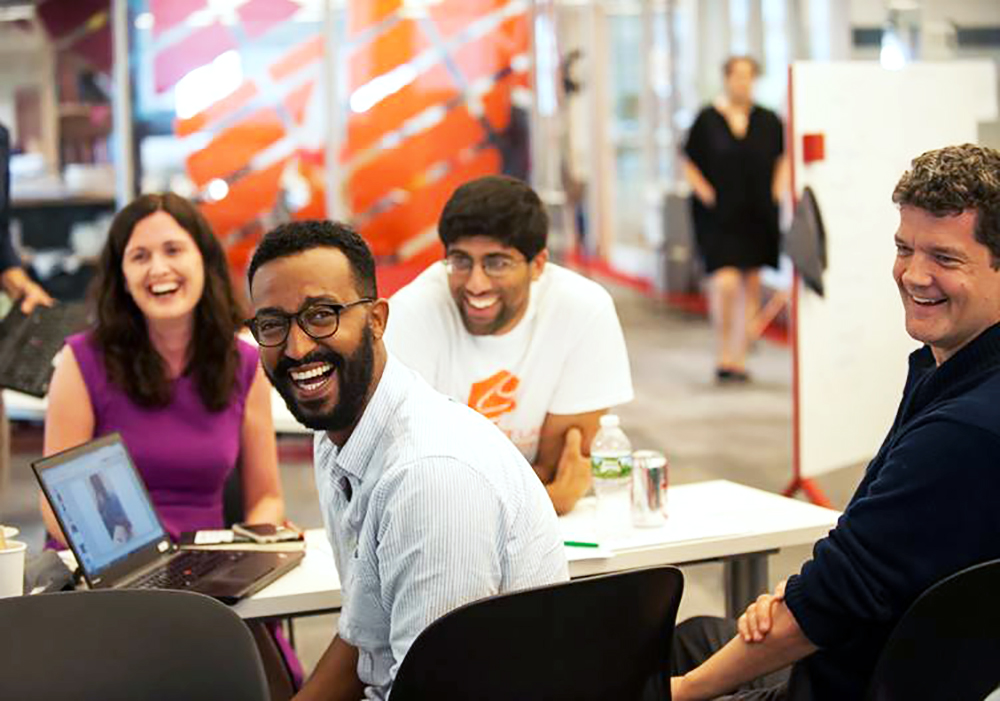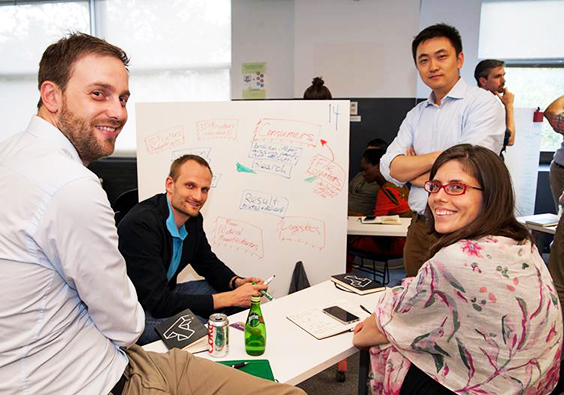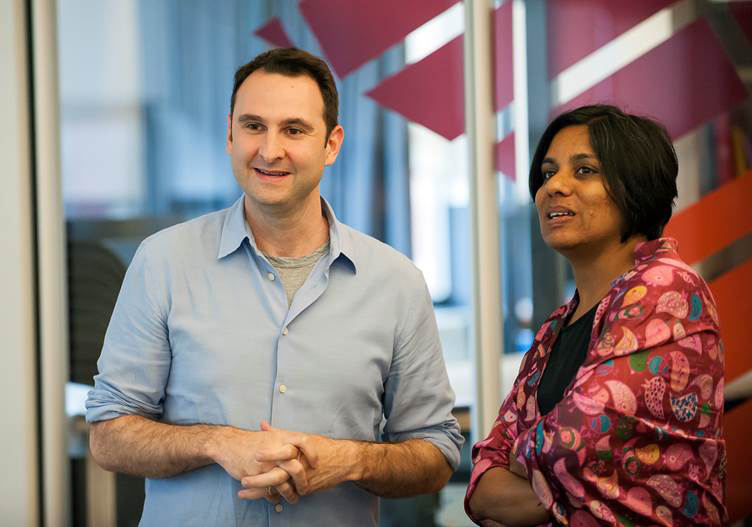WEF Fellows Get Tech Savvy at Cornell Tech’s Digital Bootcamp
Categories
Industry Collaborations, Innovation, MBA, New York City, Studio

On the third floor of Cornell Tech’s Manhattan campus, seated in a ring of orange chairs, Murray Nicol, Mariah Levin and five other members of their team from the World Economic Forum’s Global Leadership Fellows (WEF Fellows) were engaged in a spirited debate.
The topic? How to inject technology into the way parents pay weekly allowance to their children.
The idea of gamification — of turning payment into a game — was briefly discussed, and rejected. So too loyalty points. What about developing an app that links directly to the bank?
“You don’t want to limit how kids use their money,” Nicol pointed out.
But, then again — one of their goals was to disrupt the norm.
“I think we want a bold new app,” Levin said.
All WEF Fellows take part in a two-year program, the goal of which is to teach future leaders new skills, tools, and ways of thinking about leadership in the world — for today and tomorrow.

Nicol, Levin and 25 other Fellows gathered for a week-long immersion at Cornell Tech, one of five university campuses the WEF Fellows visit over the course of the program, which also includes INSEAD, the London Business School, the University of Pennsylvania — including the Wharton School — and Columbia University. One overall goal of their week at Cornell Tech was demystifying the digital world in support of their future work.
Of course, none of the current Fellows are hankering to develop a mobile app for children’s allowances. But, feeling more comfortable interfacing with digital thinkers and tinkerers? That’s essential for the mission.
“We say we aspire to develop agile servant-leaders who are driven to improve the state of their world no matter what sector they’re in,” said Selima Benchenaa, WEF’s Associate Director of Academic Affairs and Leadership, based in Geneva, Switzerland, who was traveling with the Fellows.
“But,” she added, “if you’re going to be leaders of the future, you need to understand what businesses and governments are grappling with around the digital world and technology.”
One issue that the group grappled with was the ethics of data collection. For instance, is it ethical for a company to use retail data collected from loyalty programs — say, the purchase of prenatal vitamins or pregnancy tests — in order to identify whether or not a customer is pregnant?
“Data is the new oil, a new asset class,” said Lutz Finger, a visiting scholar at Cornell Tech who led the Fellows in the session Digital Society: Understanding Big Data and Its Implications. By the end of the week, all of the Fellows appeared to be adept at — if not entirely comfortable with — reading minute details about a person’s life from their data footprint.
Their last day became a mini version of Cornell Tech’s Startup Studio, dedicated to brainstorming new business ideas. But, where students in Cornell Tech’s graduate program have a whole semester to imagine, outline, develop and (ideally) launch their digital startups, the WEF Fellows had one Friday afternoon. Nonetheless, by 3 p.m. all were prepared with ideas, sketches and in some cases elevator pitches.

Their concepts included an online scheduler, a digital clothing app and a universal translation device. The fact that all of these ideas have been heard of before is beside the point. Greg Pass, Cornell Tech’s Chief Entrepreneurial Officer said that, at this stage, ideas are so rough they only get funding from “friends and family.”
But Pass’s co-teacher Leland Rechis, Cornell Tech’s Designer -in-Residence, did single out an individual pitch for praise: #YourVote, a voting app for Millennials. He pointed out that, in their presentation, #YourVote’s team had emphasized how they wanted to both improve the voting experience overall and attract a group of people who had, by and large, seldom participated politically.
“You talked about how to get people to do something they aren’t doing now,” Rechis said. “And that is compelling.”
Most of all compelling to the Geneva-based Levin? Emerging from her week at Cornell Tech with not only a new methodology for generating ideas, but also a new vocabulary for explaining those ideas to audiences down the road.
“Now I know how to frame questions in a way that make sense to technologists,” she said. “If you don’t know how to ask a question, they look at you as if you’re from Planet Mars. Now, I don’t feel intimidated by the vocabulary, and also feel I am in a better position to discover applications for these digital tools on my own.”





